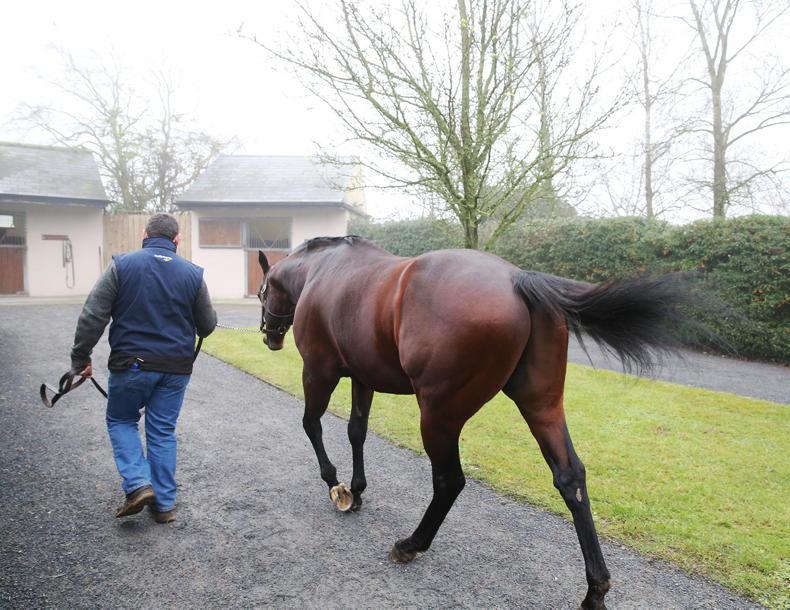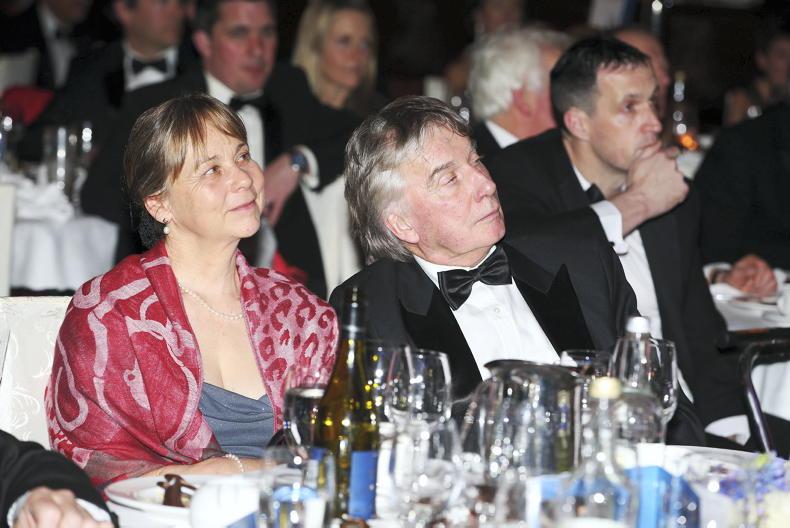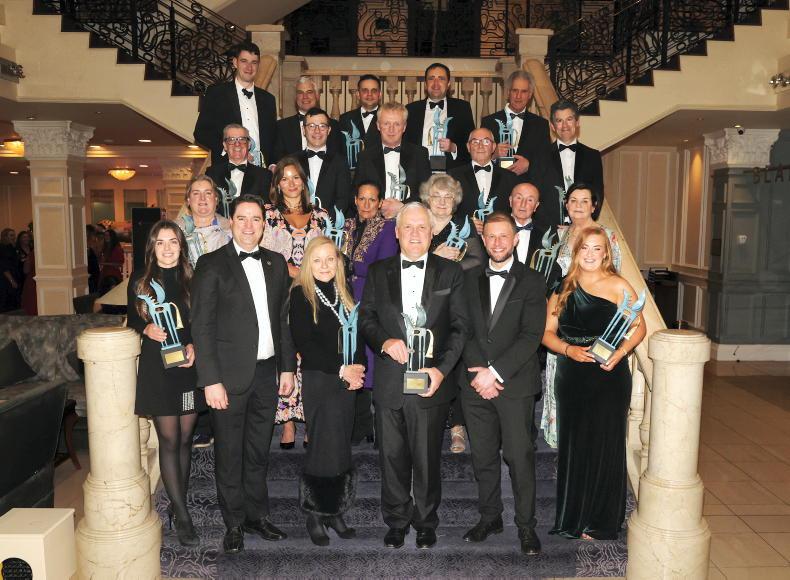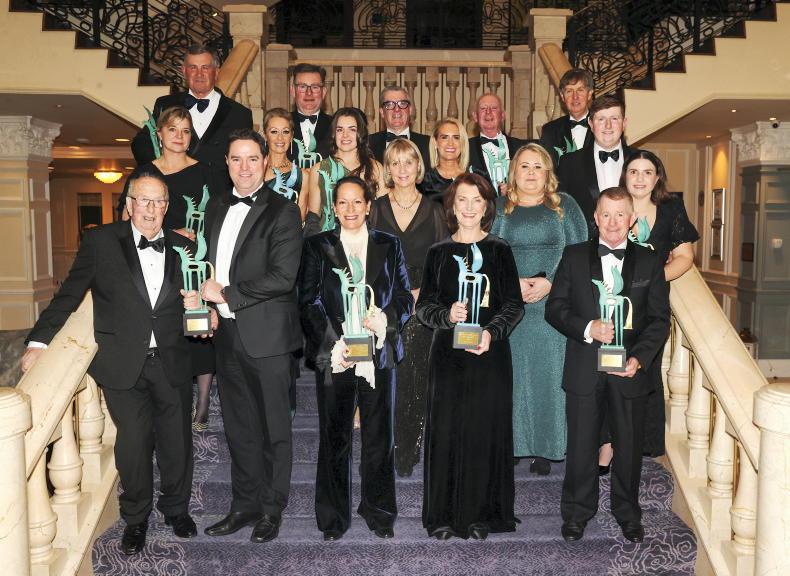A VERY well-attended webinar was hosted last Friday week (January 28th) by the Irish Thoroughbred Breeders Association, with The Irish Field editor Leo Powell as MC.
The main session of the afternoon involved a high-quality panel consisting of Sharon O’Regan from Weatherbys Ireland, Ann Munnelly of BBA Ireland, Jason Lynch from Grant Thornton, Horse Racing Ireland’s John Osborne and Des Leadon, clinical consultant with the Irish Equine Centre and veterinary advisor at international level, as well as owner of Swordlestown Little Stud in Punchestown.
Leadon kicked off the wide-ranging discussion by explaining what is meant by High Health Breeding status (HHB) for thoroughbreds, a concept he was involved in creating with a view to making the international movement of horses easier.
“HHB is a recognition of the elite health status of our breeding stock,” he said. “We began by quantifying the value of the entire European equine industry, which is documented in excess of €50 billion a year, of which €20 billion relates directly to thoroughbred racing and breeding.
“We could quantify in a verifiable way that our industry is responsible for the generation of a quarter of a million jobs in Europe. Our indirect employment is more than half a million.
“We were also able to show that we are a major exporter in Europe of thoroughbreds, of a value of more than €1.4 billion.
“Movement of horses between Ireland, Britain and France is the busiest international transfer of thoroughbreds in the world, with more than 27,000 movements. Brexit has led to a 43% decline in European-based mares visiting Ireland for covering.
“We can demonstrate that our breeding stock has a high health status because of our compliance with the Code of Practice and we can deliver certificates and demonstrate our freedom from diseases such as CEM, EVA and equine infectious anaemia.”
Anti-doping
Asked about anti-doping measures, Leadon said: “Testing on stud farms has shown no nefarious practises. We can hold our head high and say Ireland does things very well. Any accusations to the contrary simply fly in the face of the facts.”
Veterinary surgeon John Osborne is HRI’s director of equine welfare and bloodstock and was previously CEO of the Irish National Stud. He pointed out, “The public is more interested in how we do what we do and that is a new challenge for us. We must have traceability and verifiable high standards.
“We have a huge story to tell that we shouldn’t be shy in telling. Our paymaster is the general public and it is in our own best interest to engage in that argument and win. The recent equine census is a sign that horses are now much higher on the Government’s priority list and we all have to work together on behalf of the horse.”
Expensive
Ann Munnelly, director of transport at BBA Ireland, manages the BBA Ireland shipping office and oversees the company’s shipments throughout the world. She revealed the movement of horses is still very hard and very expensive.
“Veterinary checks need to be booked and carried out, VAT liability of 20% needs to be paid, meaning a customs broker is now involved and you won’t get that back straight away, so it is part of the immediate cost.
“This has affected plans, with an element of ‘not worth the time and cost’ for some mares. It’s much easier to take a horse direct by boat to France than to Britain. We’re quite lucky right now in that there are no checks at Dublin, Rosslare, Holyhead or Fishguard, but that might change.
“They are European laws, not Irish law, so they have to be followed, and our Department of Agriculture vets are doing an amazing job.”
VAT issues
On the subject of Value Added Tax, Jason Lynch – who specialises in indirect tax with Grant Thornton, reminded the audience that VAT is not going away.
“It’s a transactional tax open to interpretation. You make your purchase in the UK and the auction house hands you a tax invoice. When your horse arrives in Ireland it is subject to VAT, currently 13.5% for a racehorse.
“In deciding the VAT rate there are various factors, the history of the horse and your own history. If you bring in a horse, VAT is due on the day, but if you are VAT-registered it can be deferred, known as ‘postponed accounting’.
“A bond is security given to Revenue if a horse comes into the country temporarily. It’s an actual payment into the Revenue bank that will be refunded after the horse goes back. More conversations with Revenue are happening now.
“For flat-rate farmers, the VAT payable depends on the transaction, but currently would be 5.5%. Be mindful Revenue has questioned some activities and the definition of whether you are a flat-rate farmer is very open to interpretation. We have produced publications for the equine industry, but every transaction is looked at in isolation and treated differently.”
ePassport explained
Sharon O’Regan is general manager of Weatherbys Ireland. As former head of operations she was involved in the digitalisation of the General Stud Book and deployment of large-scale digital projects in Ireland, UK, the Middle East and other parts of the world.
“The ePassport is a digital solution for identification, health and movement, and a huge part in compliance and availability of data,” she explained. “Streamlining the registering process for breeders when they have such a small window is of huge benefit.
“We at Weatherbys pioneered it and preclearance for bringing a horse to the races was a big factor in the successful return to racing during Covid. From January 1st this year, every foal now has an ePassport, but the paper passport for the moment remains the primary identification.
“The ePassport is mandatory for preclearance, so it has already been a major benefit and has prevented horses being turned away at the racecourse. There is certainly an appetite within the industry to move to digitalisation. Preclearance makes travel easier and digitalisation can alleviate many problems.”
John Osborne pointed out that anti-money laundering regulation has come into force and anybody transacting large sums of money will be scrutinised. “Keeping ownership records straight will be part of that,” he said.
“People are tightening compliance in order to easily move horses. We do this collectively because it makes the industry easier to defend and to fund. We all have to play our part. The weakest link will put us on the front pages.”


 This is a subscriber-only article
This is a subscriber-only article
 It looks like you're browsing in private mode
It looks like you're browsing in private mode












SHARING OPTIONS: